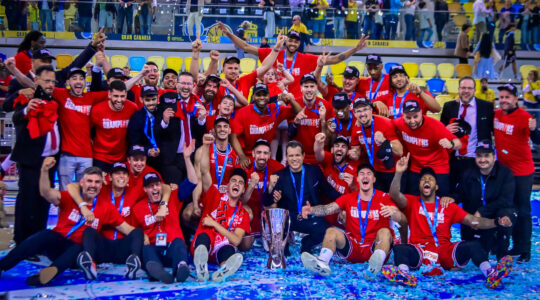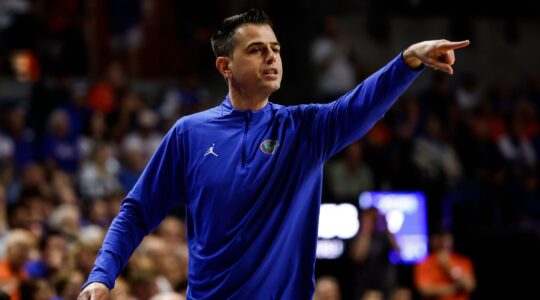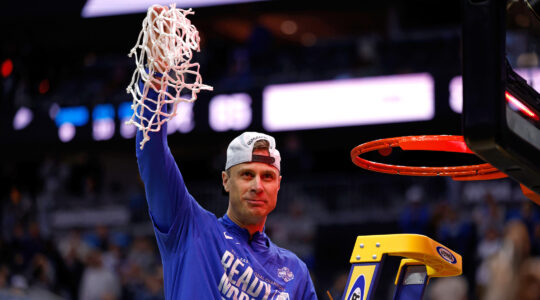(JTA) — If Eliza Kanner had only one job, late June would be busy enough.
Entering her third season as a New England Patriots cheerleader, Kanner and her team are in the Dominican Republic this week for their annual calendar shoot. The NFL preseason begins in August, and then her evenings and weekends are dedicated to the Patriots until January or February, depending on how far the team advances in the playoffs.
But Kanner doesn’t have only one job.
During the day, she works at Combined Jewish Philanthropies, the Boston-area Jewish federation, as a senior development officer. As a nonprofit — the state’s largest, according to the Boston Business Journal — CJP raises funds for Jewish institutions at home and in Israel. Like many nonprofits, CJP’s fiscal year runs from July 1 to June 30, meaning the end of June is crunch time for their annual fundraising campaign.
For Kanner, balancing the two roles is an expression of her commitment to both her passions. And when she told her boss at CJP about the Patriots trip, the response was emblematic of the support she receives from both sides.
“That’s been something that I’m so fortunate, that I have a team supporting me,” Kanner told the Jewish Telegraphic Agency. “It’s never ‘oh, this might be a problem,’ it’s ‘we’re going to make it work.’ I don’t know how you would really do both jobs without having that type of management in place, but I’m grateful every day for it.”
Jennifer Weinstock, CJP’s senior vice president of philanthropy, told JTA that Kanner has been “an incredible addition to the development department.” She hailed Kanner’s work ethic and her authenticity — which she called her “secret sauce” and a critical skill to have when working in development and fundraising.
“It’s really an honor and a pleasure to support her work with the Patriots, and we love to cheer her on whenever we can,” Weinstock added.
Kanner discovered both her passions at a young age. Growing up in Hamden, Connecticut, Kanner’s family was actively involved in their local Jewish community, particularly through their synagogue. Kanner also began dancing and cheerleading as a child, following in the footsteps of her older sister.
Once she got to the University of Connecticut, a number of formative experiences further solidified Kanner’s love of both Jewish advocacy and dance. The very first Friday of her freshman year, Kanner attended Shabbat dinner at Hillel, where she met a staff member focused on Israel engagement. “He was like, ‘we’re going to make something out of you,’” Kanner recalled. “‘You have this passion, we want to get you involved.’”
Hillel created a marketing internship for her, through which Kanner, a journalism major, helped with newsletters and public relations. She went on Birthright the following summer, and later completed a fellowship with the Israel advocacy group StandWithUs.
“Taking on that fellowship is when I really learned how to be an educator, and how to teach other people about Israel,” Kanner said. “Throughout college, I wanted to just be that resource for my peers, be a resource for other educators on campus.”
In a Middle Eastern studies course during her sophomore year, Kanner said one of her professors put a map of the region on the screen for the 100-student lecture. She pointed to several of the countries on the map — Syria, Lebanon, Jordan — and then, according to Kanner, pointed to Israel and said “and this is Palestine.”
“I raised my hand and I said, ‘Professor, that country that you just pointed to is called Israel, and you’re doing an injustice to this class if you call it anything but that,’” Kanner recounted.
In Kanner’s words, the professor responded: “Oh, Eliza, you must be Jewish. That’s the only reason you care about Israel.”
Kanner reported the interaction to the university, bringing it all the way up to the university’s president at the time, Susan Herbst, who is Jewish. Kanner said the professor ultimately had to issue a public apology and have future course materials approved.
A spokesperson for the university did not comment on the specifics of the incident but said that the university “abhors all forms of bias, bigotry, and discrimination, certainly including antisemitism.”
“The entire experience is when I understood that if I’m not the one standing up for Israel, who will be?” Kanner said.
Kanner’s dance career was taking off around the same time. She competed with the UConn dance team her freshman and sophomore year before taking a break in 2017 — when she was named Miss Connecticut.
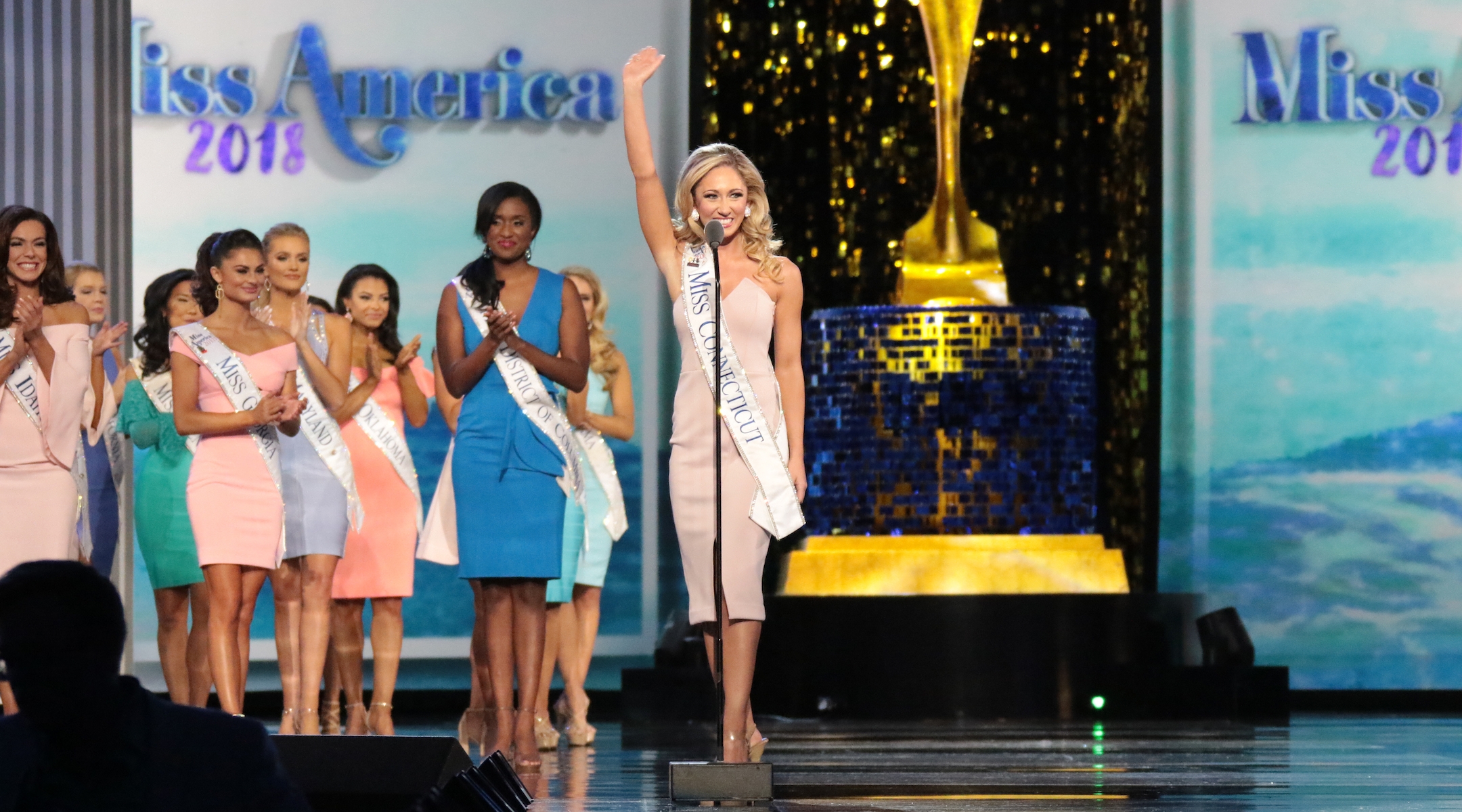
Eliza Kanner walks on stage during the 2018 Miss America pageant, Sept. 8, 2017 in Atlantic City, New Jersey. (Donald Kravitz/Getty Images for Dick Clark Productions)
Kanner said she was very open about her Jewish identity during the national competition, a decision that concerned some members of her family.
“Should I have become Miss America, I would have used that platform to continue spreading this message,” Kanner said. “I only felt it was appropriate to go into the competition as my full self.”
There has only been one Jewish Miss America winner — Bess Myerson, who won the competition in 1945. She said the Miss Connecticut board was very supportive, even calling her their “Esther,” a reference to the heroine of the Purim story.
After college, Kanner moved to Boston, where she continued her Israel advocacy work with StandWithUs, and later CJP, where she first served as a campus engagement manager. It was while living in Boston that Kanner also got back into cheerleading.
Kanner auditioned for the Patriots three times before making the team in 2021. She said that while being an NFL cheerleader is a part-time job, “it’s certainly a full-time commitment.”
For one thing, cheerleaders have to re-audition every year. The tryout process for returnees begins in March, just weeks after the NFL playoffs conclude. In addition to practices and games, Kanner said she participates in multiple promotional appearances every week, working with local organizations like Boston Children’s Hospital, breast cancer awareness groups and elementary schools.
Kanner is currently the squad’s only Jewish cheerleader, but she said she has received an outpouring of support from previous Jewish Patriots cheerleaders.
“They’ve seen how much work I’ve been doing in terms of promoting this work as a cheerleader, and they’ve reached out to me, some from many, many years ago,” she said.
Kanner said she hasn’t felt isolated on a team of more than 30. If anything, she said the dynamic has felt the opposite, as many cheerleaders have asked her “thoughtful” questions about Jewish holidays and the “#StandUptoJewishHate” social media campaign launched by Patriots owner Robert Kraft earlier this year.
“[W]ith the Stand Up to Jewish Hate campaign, they’re like, ‘We can share it on Instagram and whatnot, but what else can we and should we be doing to support the Jewish community?’” Kanner said. “It’s been an awesome experience to see them not shy away from the conversations, but instead fully immerse themselves.”
One of those teammates is Olivia Kerins, who has known Kanner for three years and whose Palestinian family hails from Ramallah in the West Bank. She said Kanner is a “very, very inspiring person to have on our team” and commended her for her inclusiveness and public speaking skills.
The pair have had conversations about Israel and the Middle East, and Kerins said Kanner has been “very supportive and understanding.”
The Kraft family’s connections to CJP also run deep. Inside the Kraft Family Building, where CJP is headquartered in Boston, there is a Harry Kraft Center for Jewish Education, named for Robert Kraft’s father, a longtime Jewish educator, and the Myra Kraft Boardroom, named for Robert’s late wife who served as the chair of CJP’s board from 2006 to 2009 and was twice the co-chair of CJP’s annual campaign.
Kraft has also endowed the Myra and Robert Kraft Passport to Israel program, and he works with the federation through his Foundation to Combat Antisemitism.
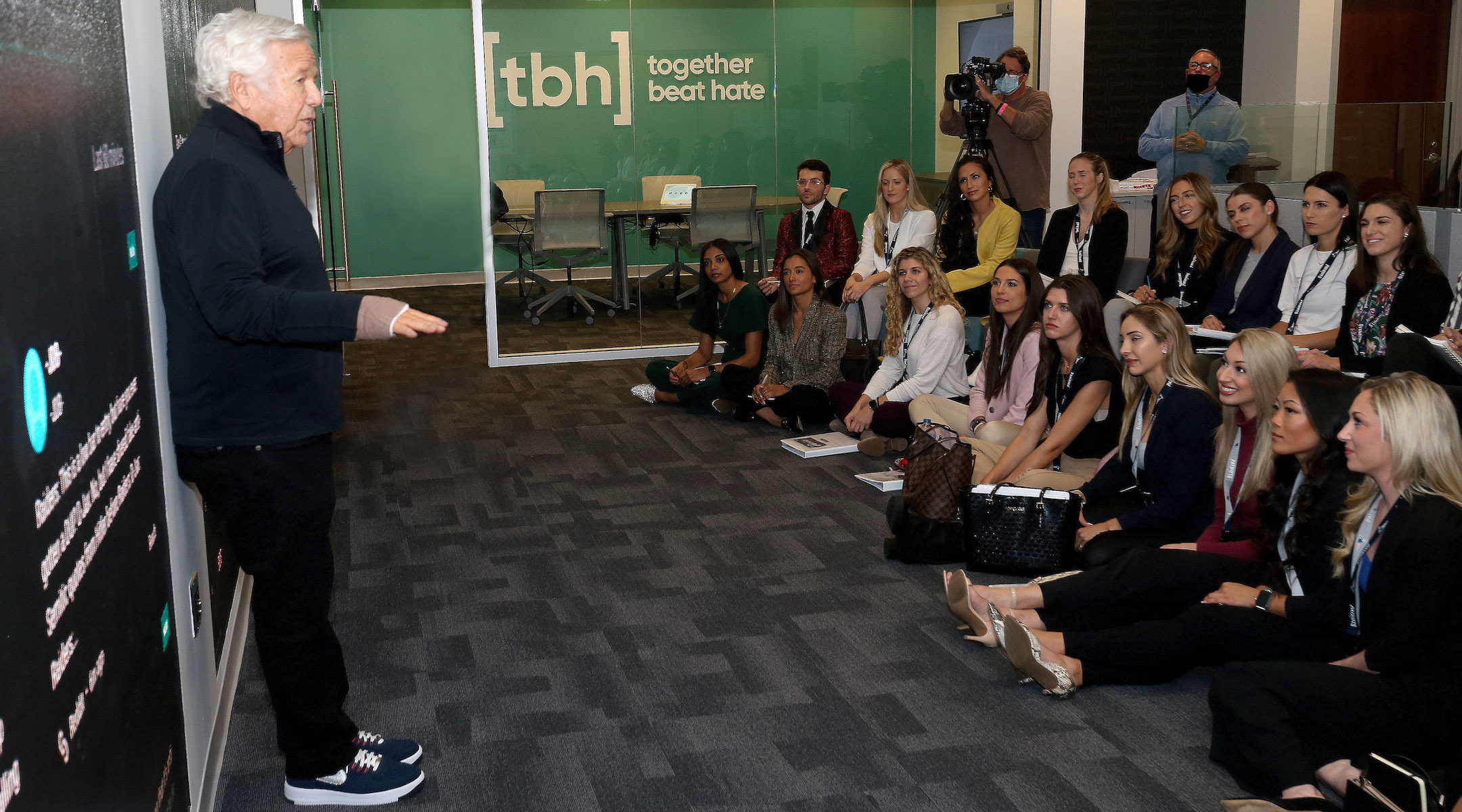
Robert Kraft, left, addresses the New England Patriots cheerleading team in November 2021. Eliza Kanner is seated in the bottom right corner. (Dwight Darian/New England Patriots)
During her first month as a Patriots cheerleader, Kanner was meeting with the team from Kraft’s foundation, then called Together Beat Hate, when Josh Kraft — one of Robert’s sons, and the president of the New England Patriots charity arm foundation — stopped by. He asked Kanner if she had met his father, and when she said that she hadn’t, he offered to go grab him.
Moments later, Robert Kraft walked in and sat down with Kanner.
“We’re talking a little bit about our connection to the Jewish community and why this work is so important to us,” Kanner said. “And he looks at me and he was like, ‘Congratulations for making the team, but I’m even more proud of the work that you’re doing for the Jewish community.’”
Kanner added that she was recently surprised with a handwritten letter from Kraft at a cheerleading practice.
“Sometimes I still have to pinch myself that he even knows who I am and the work that I’m doing,” she said.
JTA has documented Jewish history in real-time for over a century. Keep our journalism strong by joining us in supporting independent, award-winning reporting.

